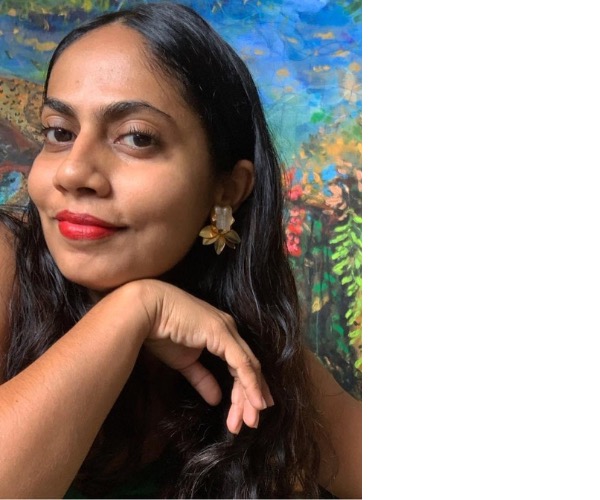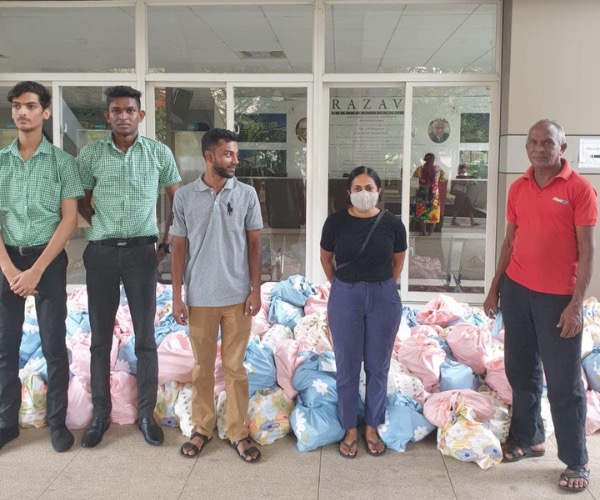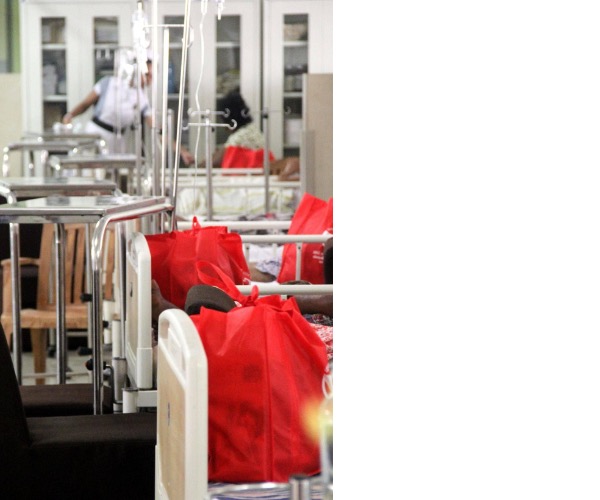
Sep 21 2022.
views 513Today on the Buzz, I feature Kamilka who has battled her demons with Thyroid Cancer. You may ask why I'm doing a write-up on this. The reason is that many other cancers have been highlighted over the years in many ways and Sri Lanka needs to hear the story and process of diagnosing Thyroid Cancer as September is dedicated to creating awareness.
Many cancers can be treated and managed effectively if they are diagnosed early enough, therefore, increasing awareness and a general understanding of cancer as a whole as well as specific cancer types can help to save lives.

1. How did you find out you had cancer
By chance when my mother noticed a lump on my neck. At the time, she was working overseas and I had felt my neck was swollen to the touch but when I asked office colleagues they all said they don't see anything different. My mother used to - back then - see me every 2-3 weeks, and it was she who noticed the swelling.
We went to a doctor who did a physical examination and ordered an ultrasound scan of the throat area. The scan revealed a growth, and I then went to a radiologist who did a fine needle biopsy, through which it was determined that the growth I had was indeed Thyroid Cancer.
2. What are the misconceptions that you think are there when it comes to cancer or thyroid cancer?
In general, especially in our part of the World in South Asia, the word Cancer is considered to an extent, a social stigma that makes people hardly talk about it and attempt to hide it from society. Most conversations are hushed and hidden, where the right support systems fail to aid the person having cancer and create a positive attitude around them.
'Cancer equates to death' is another largely inherent thought. That if you get cancer you die. This sense of morbidity is what causes it to be a social stigma.
In the medical world, Thyroid cancer is termed "best cancer to have". In countries like the USA, they already have conversations about how negative this comment is, as a person having had thyroid cancer, I too was told this very line, oh the best cancer to have. I feel no cancer should ever be deemed as a good thing to have, and should never be classified as such.
3. What should you do, if you think you have a lump in your body ?
Self-examining your body is a good habit. There are plenty of tutorials teaching you how to do this. Should you find out you have a lump and you think it is not going away, you should go to a GP, and get tested.
Just because you have a lump or a nodule doesn't mean it's cancer. Always get tested, do not sit on it.
If you have a family history of cancer, you should make time to get tested every few years. If you are above 35 - especially females - you must get a women's wellness test done. That checks your breasts / ovaries etc. Diagnosis will always be the best option, rather than sitting on it with doubt and fear.
4. What type of procedure did you undergo for thyroid cancer?
After being diagnosed, I was referred to an oncological surgeon, and I underwent a "thyroidectomy" which is the total removal of my thyroid gland. I then underwent radio-iodised treatment which is a type of radiation that is specifically meant for thyroid cancers.
5. What is your involvement at the Cancer hospital known as "Apeksha Hospital"?
I have been volunteering at the cancer hospital since I was in grade 9, where I initiate fundraisers and take up projects to better aid the patients, this project has consecutively run for 24 years and is known as "Spread a little love".
6. Did your exposure to your voluntary work at Apeksha Hospital aid or help you go through your cancer episode?
In many ways yes, at Apeksha hospital I have seen how patients struggle and how difficult and vulnerable they are, especially because most patients come from far away, and do not have the comfort of family and friends. I was diagnosed when I was 26, by which time I had been a volunteer for over 12 years. That type of experience makes you stronger.
Due to my exposure, I was also often reading reports of other people, helping them understand certain words, and directing them to doctors as I was familiar with oncologists etc, and I, therefore, was able to read my own report and get to know I was positive for cancer.

7. How was that experience?
Scary and overwhelming, but I never treated it as something I should be hiding or not talking about. I named my cancer "Bob" short for "Sponge Bob" the cartoon character as the scan revealed its size and it was quite a square. It made the conservation easier, to say Bob than say Cancer. To this day, 12 years on, my friends still call it Bob.
Cancer is so very dilapidating that it affects the entire family and not just the person having cancer. In developed countries, you have family counselling and grieving guidance where you are rendered support. In Srilanka, we don't have this sort of integrated support system, therefore you must rely on close friends and family. It's paramount choosing who can and will support you.
I had an entire army, holding the fort for me and I still do. My hospital room was like a party, with friends singing, some praying, some having prayer calls, and some taking turns to feed my dogs back home. I was so very privileged to have and still have that network.
8. What is the most trying challenge of having thyroid cancer?
That I have to deal with its side effects for as long as I live, and these side effects are silent, therefore the struggles I face are not visible. Any discomforts or ailments when visible are far easier to explain and speak about. When things are within your body that cannot be seen, and you go through it quietly it's much harder to tell to someone else.
As an Architect and designer, my job role requires a lot of hours at the site, as it's not a typical desk job. There are days I can stand sleeping at 9 am, and that's fatigue and body aches that are caused by thyroid levels going haywire, but when someone looks at me, nothing is visibly wrong, so I have to somehow go about my day. I can retain water and gain about 1-2 kg overnight, or have really bad palpitations and tremors, all of which affect how I feel.
I often remind myself that I didn't die of cancer and that at that moment, I just breathe and go with it. My surgery was in 2010, and in the twelve years since surgery I have a better understanding of my body, and I know how to and how not to push it. When you open a conversation and actually talk about it, you realise people do understand, I sometimes take a day off to just sleep and rest because my body requires it and I am not ashamed to let a client know that I needed that day off and why.
9. What 10 pieces of advice would you give to someone having thyroid cancer or someone after having surgery for thyroid cancer?
1. Choose your doctor well, make sure he/she is a doctor who will speak to you, for more than 2 mins. No doctor is God and getting a second opinion is not a crime or something you should be afraid to do.
2. Be knowledgeable. There is so much data, be positive enough to learn about your situation. I maintained a journal with questions for my doctors. By learning to better understand you take charge of the situation, rather than the situation taking charge of you.
3. It's ok to be scared, to say that you are, to cry and be emotional. It's a really difficult time, and you need to be able to cry about it.
4. Surround yourself with people who will support you and be positive around you
5. Stay healthy. The human body is like a machine, it's amazing how much capacity and endurance it has, so treat it well, because you have only one body. Treat it with respect and kindness
6. Reach out for help and let those around you know how you really feel.
7. Listen to your body, this is something that comes with maturity, but know when to rest and when to push.
8. Having cancer or having had cancer does not in any way lessen your worth, if anyone ever makes you feel like that, walk away.
9. Do things that feed your soul, don't just be part of the rat race, make time to explore things and learn new things.
10. Get your tests as and when you are supposed to.

10. Do you have a support center for Thyroid Cancer in Srilanka?
I haven’t found any in Srilanka, I could be wrong but so far I haven't. I instead follow Thyca, which is a Thyroid cancer survivor association based in USA. They put out some really great material and often links fellow survivor through whom stories and challenges are shared. In Lieu of Thyroid cancer awareness month which is September, they have a 30-day programme where they post very useful data daily.
It’s really motivating to be part of such support networks.
0 Comments